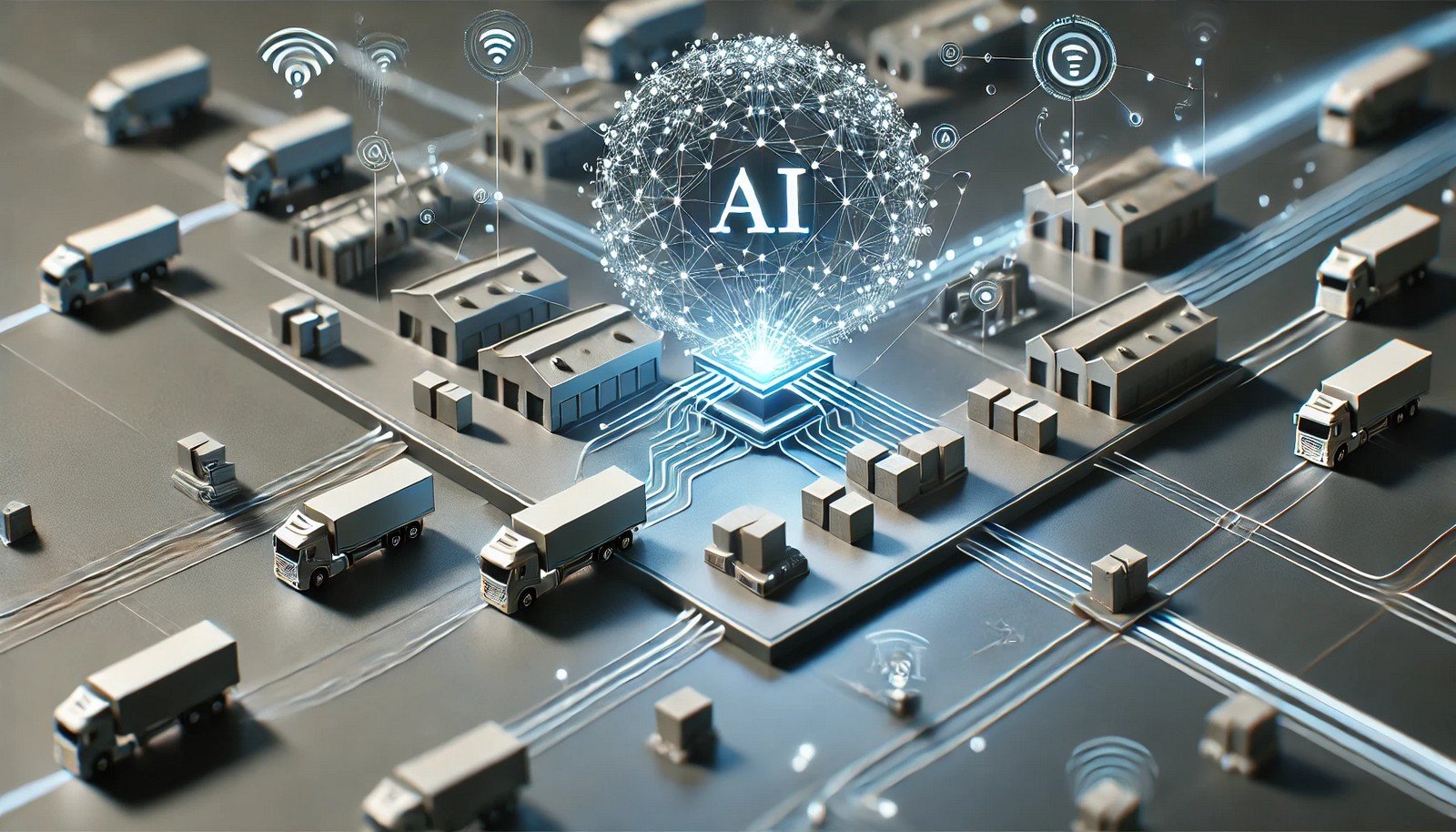AI in Supply Chain

Quick Navigation:
- AI in Supply Chain Definition
- AI in Supply Chain Explained Easy
- AI in Supply Chain Origin
- AI in Supply Chain Etymology
- AI in Supply Chain Usage Trends
- AI in Supply Chain Usage
- AI in Supply Chain Examples in Context
- AI in Supply Chain FAQ
- AI in Supply Chain Related Words
AI in Supply Chain Definition
AI in Supply Chain refers to the integration of artificial intelligence technologies into supply chain management processes. Through AI-powered tools like predictive analytics, machine learning, and robotic process automation, companies can optimize logistics, forecast demand, automate warehousing, and enhance decision-making across supply chain stages. This application is crucial for minimizing waste, reducing costs, and meeting consumer demands efficiently.
AI in Supply Chain Explained Easy
Imagine you’re stacking shelves at a store, and every day you have to guess how many items to restock. AI in the supply chain is like having a super-smart helper that knows how many items you’ll need based on lots of past data, weather patterns, and even local events. It makes sure there’s always enough stock, so shelves don’t go empty or overflow.
AI in Supply Chain Origin
The concept of AI in Supply Chain evolved as industries began to handle massive amounts of data and needed smarter ways to manage logistics. In the early 2000s, advances in machine learning made AI-driven optimization possible, transforming traditional supply chain management into a data-rich, predictive process.
AI in Supply Chain Etymology
The term combines "AI," referring to artificial intelligence, and "supply chain," the network managing the flow of goods from supplier to customer. Together, they denote the application of intelligent systems within supply logistics.
AI in Supply Chain Usage Trends
Over recent years, AI in Supply Chain has grown in popularity, with applications expanding across logistics, manufacturing, and retail sectors. Major companies use AI to forecast demand, optimize routes, automate repetitive tasks, and adapt to market changes quickly. The COVID-19 pandemic further accelerated AI adoption in supply chain management as companies sought resilient, adaptive solutions to meet unpredictable demands.
AI in Supply Chain Usage
- Formal/Technical Tagging:
Artificial Intelligence, Supply Chain Management, Predictive Analytics, Logistics Optimization - Typical Collocations:
"AI-driven supply chain," "predictive analytics in supply chain," "AI in inventory management," "supply chain automation with AI"
AI in Supply Chain Examples in Context
- Companies use AI in the supply chain to predict demand, minimizing stock shortages and surpluses.
- AI-powered logistics helps reduce delivery times by optimizing routes and managing real-time traffic data.
- Warehouses equipped with AI automation improve efficiency by organizing inventory and fulfilling orders faster.
AI in Supply Chain FAQ
- What is AI in Supply Chain?
AI in Supply Chain involves using AI technologies to streamline logistics, forecasting, and management processes. - How does AI improve supply chain efficiency?
AI helps optimize routes, automate tasks, and accurately forecast demand, reducing delays and costs. - What industries use AI in the supply chain?
Industries like retail, manufacturing, and logistics heavily rely on AI for supply chain optimization. - Can AI reduce supply chain costs?
Yes, AI can lower costs by improving demand forecasting, reducing waste, and increasing efficiency. - What are some examples of AI in Supply Chain?
Examples include automated warehousing, predictive analytics for demand forecasting, and real-time inventory tracking. - Is AI in Supply Chain expensive to implement?
Initial setup can be costly, but long-term savings and efficiencies often justify the investment. - How does AI support supply chain resilience?
AI adapts to disruptions by adjusting logistics strategies, helping to maintain a stable supply flow. - What are common AI tools used in supply chain management?
Tools include machine learning algorithms, robotic process automation, and IoT-integrated systems. - How does AI help in inventory management?
AI predicts inventory needs accurately, helping avoid shortages and excess stock. - Will AI replace human workers in the supply chain?
AI will automate repetitive tasks, but human oversight remains essential for complex decision-making.
AI in Supply Chain Related Words
- Categories/Topics:
Machine Learning, Logistics, Supply Chain Management, Automation
Did you know?
One of the first large-scale uses of AI in Supply Chain was by major retailers like Amazon and Walmart, who used machine learning algorithms to streamline inventory and automate warehouse operations. This innovation not only transformed their supply chains but also set new standards in logistics and fulfillment for other industries.
PicDictionary.com is an online dictionary in pictures. If you have questions or suggestions, please reach out to us on WhatsApp or Twitter.Authors | Arjun Vishnu | @ArjunAndVishnu

I am Vishnu. I like AI, Linux, Single Board Computers, and Cloud Computing. I create the web & video content, and I also write for popular websites.
My younger brother, Arjun handles image & video editing. Together, we run a YouTube Channel that's focused on reviewing gadgets and explaining technology.



Comments powered by CComment